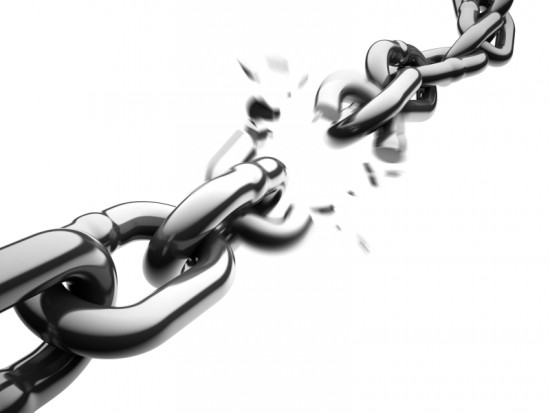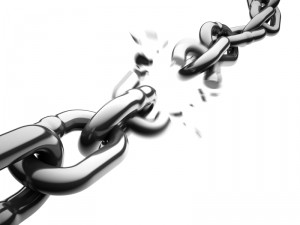Habit is defined as an acquired behaviour pattern regularly followed until it has become almost involuntary. Over time, some of us have acquired either good or bad habits due to the society we live in, our upbringing or our reaction to circumstances around us. What we decide to call bad habits sometimes vary from one person or one society to another, but some habits are generally condemned and people would expect us to change them or stop them totally before they consider us “acceptable”.
Most of the time, bad habits are simply a way of dealing with stress and boredom over time. Many habits, from biting your nails, excessive smoking, and eating junk foods to overspending, drinking every weekend and wasting time on the internet, are usually simply responses to stress and boredom. But sometimes, as we grow older or become more responsible, we try to stop some habits we consider bad.
But can we really stop bad habits, or do we just change them? Experts have suggested that it is better to find a way to replace bad habits with good ones than to try and eliminate them completely. They believe bad habits provide some type of benefit in your life; so it’s very difficult to simply eliminate them. And this is why simplistic advice like “just stop doing it” rarely works. Truth is, all of the habits that you have right now — good or bad — are in your life for a reason. And in some ways, these behaviours provide a benefit to you, even if they are bad for you in other ways. Sometimes the benefit is biological like it is with smoking or drugs. Sometimes it’s emotional like it is when you stay in a bad relationship. And in many cases, your bad habit is a simple way to cope with stress; for example, biting your nails, pulling your hair, tapping your foot, or clenching your jaw.
So, how do we keep nudging ourselves in the right direction, forming one or two better habits to replace the ‘bad’ ones? Here are four simple ways of doing so.
DEFINE
As an individual, you need to define what the bad habits you want to replace are. As much as I believe there are some habits that are very visible to others and society might strongly condemn, I believe some bad habits are very personal. And until you define what bad habits are as a person, and define what they cost you negatively, you might never be ready to do anything about them no matter what anyone says. So define bad habits and you are on your way to replacing them with good ones.
DISGUST
One does not usually equate the word “disgust” with positive action. And yet properly channeled, disgust can change a person’s life. But when you feel disgusted about certain things; then you can be sure you have reached a point of no return. You are ready to throw down the gauntlet at those issues and say, “I’ve had it!” After defining those bad habits and you say “enough is enough”, there is a productivity that comes with that kind of disgust.
DECISION
Sometimes when we are pushed to the wall, we make hard decisions. And once we reach this point, we have to deal with the conflicting emotions that come with making them. We most times experience conflicting armies of emotions when we are about to make life changing decisions especially about those habits that provide seemingly huge benefits. Each of these armies of emotions comes with its own arsenal of reasons, battling for supremacy of our minds. But we still need to decide if we want to continue with those ‘bad’ habits, or we want to do something about them.
DESIRE
After sorting out our emotions with a firm decision, we must start gaining desire to replace the habits. Desire most times comes from the inside but can also be triggered by outside forces. If you want to stop smoking excessively, hanging out with friends who are non-smokers or befriending someone who doesn’t like smokers might increase your desire to replace and then cut the habit. I have a friend who used to smoke a lot, but when he met his girlfriend (now wife) the desire to stop smoking increased because the girl is allergic to cigarette smoke, and my friend wanted to be with her. So he fashioned out ways to gradually reduce his smoking habits, he tried nicotine replacement therapy, generally avoided his smoking triggers and before long, he stopped completely.
So, develop the desire to replace or cut the habit, or just embrace things that can help trigger the desire.
DETERMINE
Benjamin Disraeli, the great British statesman, once said, “Nothing can resist a human will that will stake even its existence on the extent of its purpose.” In other words, when someone is determined to get something done, nothing can stop him.
When you are trying to cut or replace a bad habit, you have to constantly promise yourself that you will never give up. You have to cut out as many triggers as possible. If you smoke when you drink, then don’t go to the bar. If you eat too many cookies when they are in the house, then give them all away. Be determined to break bad habits by avoiding the things that cause them.
Breaking bad habits takes time and effort, but mostly it takes determination and perseverance. You might not have success right away, but that doesn’t mean you can’t have it at all.
About the author: Chris Bamidele is a passionate and unapologetic Nigerian, who believes in God and humanity. He is a writer, blogger, and an aspiring Television Director; and an optimist to the core. He blogs at www.chrisbamidele.wordpress.com and tweets @Chrisbamidele


